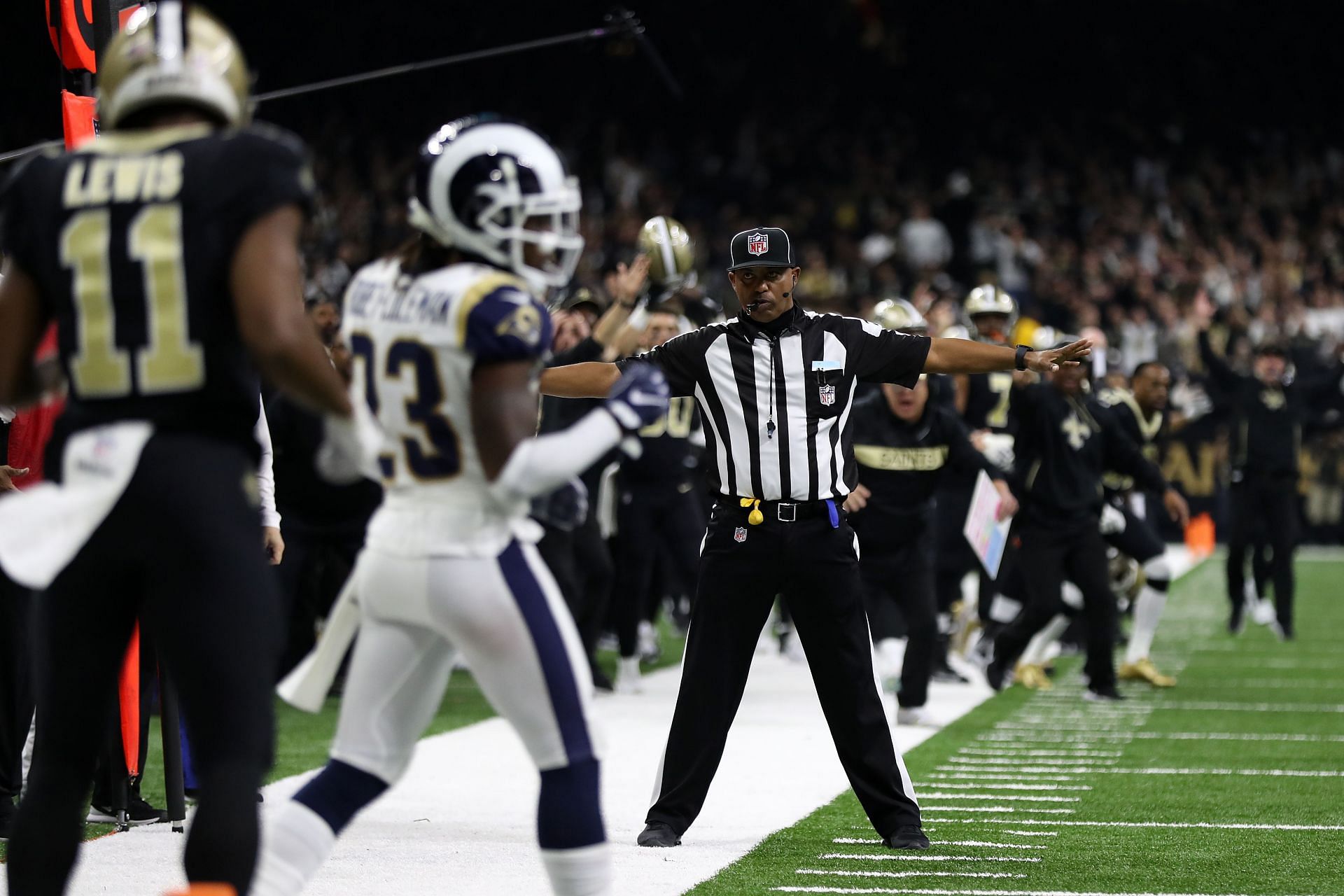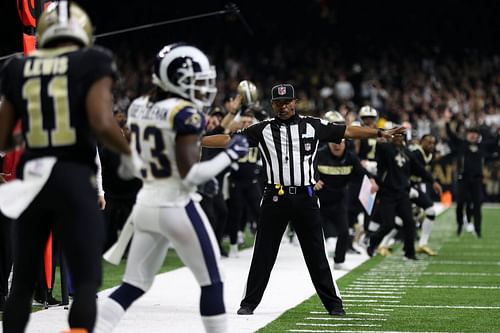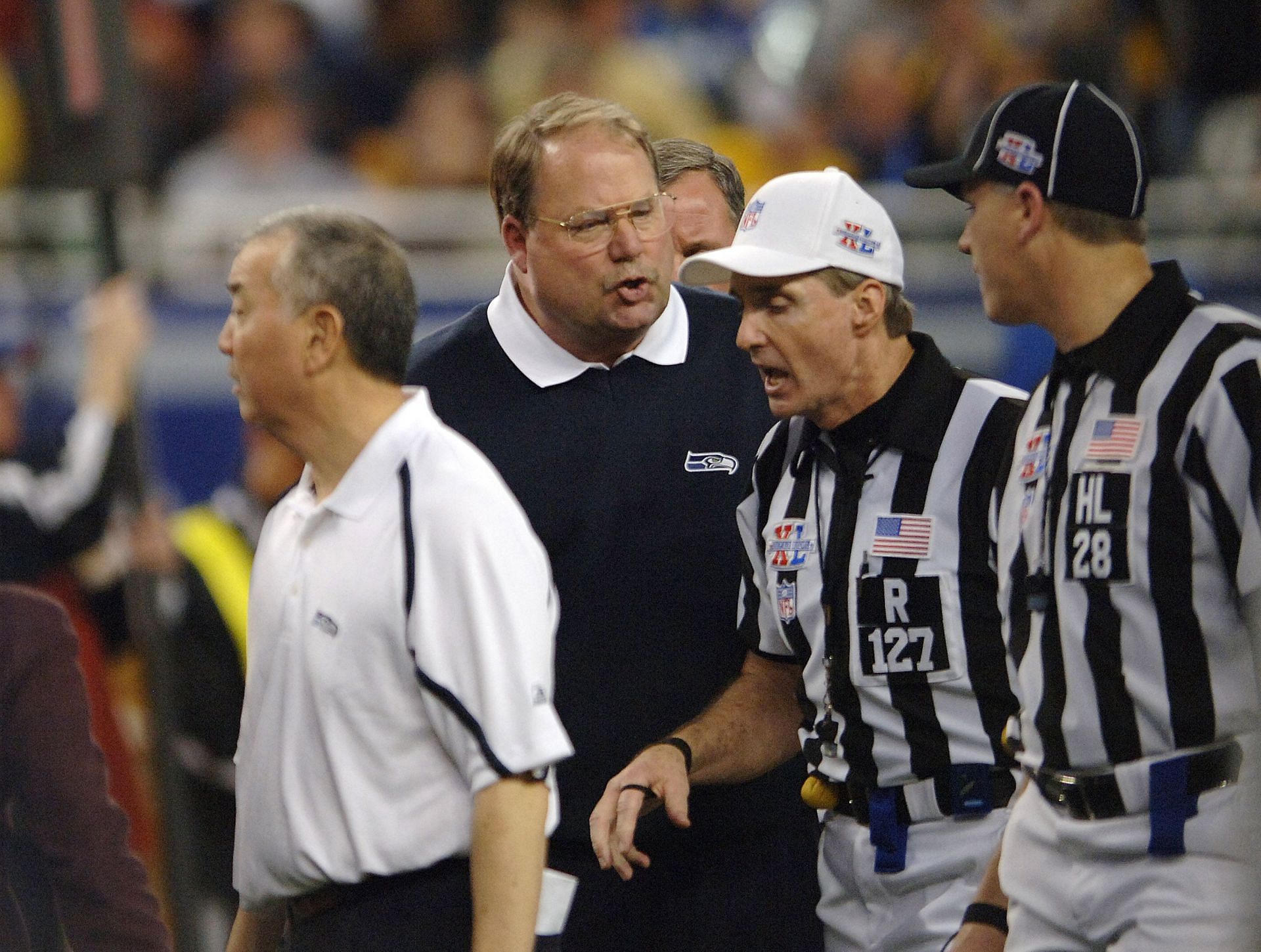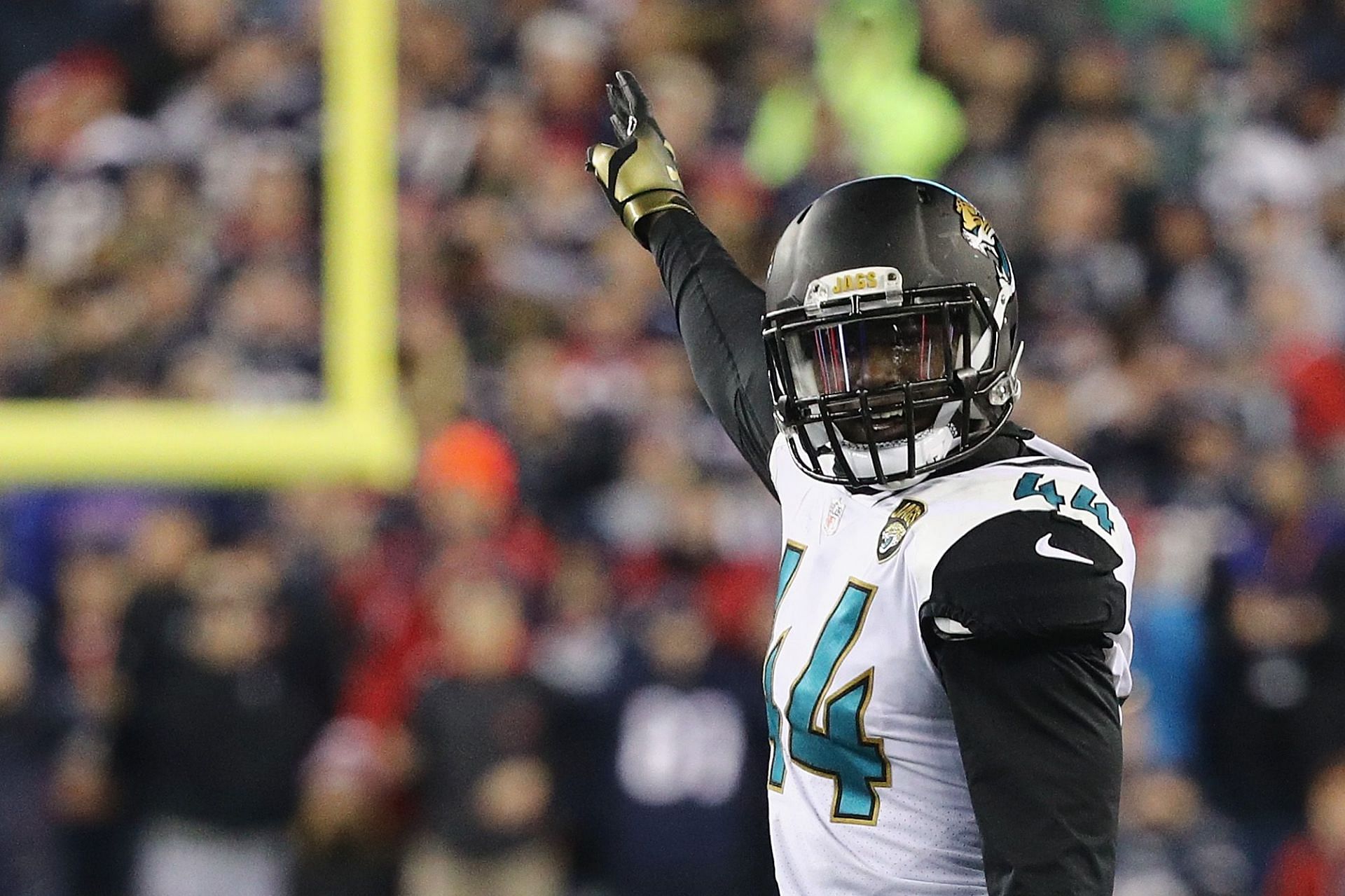
5 times an NFL team was robbed of a playoff win due to officiating blunders

In the grand scheme of things, no official, NFL or otherwise, has ever cost a team a game. If a squad is relying upon the referee crew to get everything right, they've already lost.
Nonetheless, controversy persists amongst fans of teams apparently scorned by poor calls even years after the fateful flag (or lack thereof) was thrown. Dallas Cowboys supporters are the latest to cry foul over an official's foul, blaming them for their apparent interference in their attempt to get off a game-extending spike at the end of their fruitless Wild Card endeavor against the San Francisco 49ers on Sunday.
With the Divisional playoff proceedings looming this weekend, SK looks back at some of the most controversial and impactful calls in recent memory...
Looking back at the NFL's most controversial playoff calls
Bert's hurt (2000 NFC Championship)
Pondering the particulars of a catch is, alas, nothing new in the NFL (more on that in a minute). The new century opened with such controversy, as an overruled catch staved off a monumental upset in the NFC title game. After all, you know a call is questionable when it yields an entirely new rule. The NFL tried to do so via the "Bert Emanuel Rule," which came after the St. Louis Rams' 11-6 triumph over the Tampa Bay Buccaneers.
The visiting Bucs had a chance to win the game in the end, even after quarterback Shaun King was the victim of a 13-yard sack on a potential game-winning drive. They worked their way back to the cusp of the red zone on a diving catch by Emanuel, but a replay review ruled against him, leading to a pair of desperate incompletions from King that capped off the sloppy contest and the continuation of "The Greatest Show on Turf."
The ensuing rule enacted by the NFL, which allowed for a catch to hit the ground as long as the receiver maintained possession, came as little consolation to the hapless Bucs, who will have a chance to exact an ounce of revenge on Sunday afternoon (3 p.m. ET, NBC).

Hawkward (Super Bowl XL)
Multiple calls were said to have decided the fate of the 40th Super Bowl. At first glance, the Seattle Seahawks' seven-penalty tally against the Pittsburgh Steelers, which cost them 70 yards, is relatively harmless — even almost normal — for an NFL game. But it was the timing of certain yellow tosses that caused consternation in Seattle.
For example, a questionable offensive pass interference against Darrell Jackson erased a Seattle touchdown, leading to a mere field goal. Penalties weren't the only problem: some Seattle fans felt a Jerramy Stevens drop, which was originally ruled a catch, stifled early momentum, while Ben Roethlisberger appeared to be short of crossing the goal line when his one-yard scoring rush just before the half gave Pittsburgh a permanent lead.
NFL officials defended the calls, but they did nothing to quell the new brand of Seattle storms in the Pacific Northwest.
The Fateful Eighty-Eight (2015 NFC Divisional)
On January 12, 2015, anyone involved with the game of American football came to a stunning realization: they didn't know what a catch was.
With minutes remaining in an NFC Divisional playoff tilt between Dallas and the Green Bay Packers, the visiting Cowboys had a chance to pull off an upset. Facing a two-yard fourth down, Tony Romo went for it on a deep pass to one of his favorite targets, Dez Bryant. Bryant appeared to make an acrobatic catch that landed mere yards short of the goal-line, which would've given the Cowboys a slim lead in the game's dying stages and potentially taken them to their first conference title game since 1996. Alas for America's Team, a replay review ruled the throw incomplete, despite the ball never appearing to visibly hit the ground.
Bryant's apparent attempt to stretch the ball to the goal line might've played a role, as VP of Officiating Dean Blandino claimed that Bryant didn't "hold on to (the ball) throughout entire process of contacting the ground."
Dallas never saw the ball after that, and the Packers would move forward to a semifinal in Seattle. To this day, Dallas fans continue to insist that "Dez caught it".

Jacksonville's Jack's touchdown is hijacked (2018 AFC Championship)
Speed kills in the NFL playoffs. Alas, it might've also killed the Jacksonville Jaguars' chances at reaching their first Super Bowl.
Facing the mighty New England Patriots, officials refused to cut the Jaguars a break, even with a surprising 20-10 lead early in the final quarter. That lead threatened to inflate to three possessions when Myles Jack forced and recovered a Dion Lewis fumble and had nothing but daylight ahead of him. But the officials called the play back, originally ruling Lewis down by contact.
They reviewed the call and brought about a bittersweet reversal: the officials correctly ruled that Lewis fumbled and Jack clearly recovered, but took away his potential runback. One three-and-out later, New England's comeback bid was fully underway, finishing the contest with 14 unanswered points to secure a 24-20 victory.
The Jaguars have never fully recovered, having won only 15 games in the ensuing four seasons. Jack has stuck around, but most of the defensive studs from that AFC finalist squad have moved on.
A flag? Sain't happening (2019 NFC Championship)
New Orleans Saints fans accused the NFL of "California Dreamin'" after a poor call set a course for the opposing Rams (in the midst of their third season back in Los Angeles) to return to the Super Bowl.
The teams' NFC Championship showdown was coming down to the wire, but the Saints seemed set by moving the ball into the red zone. Facing a third down 13 yards away from the end zone and likely sealing the score, the Saints opted for Drew Brees to pass to Tommylee Lewis, who was knocked to the ground by Rams defender Nickell Robey-Coleman before the ball could get to him. No pass interference was called, forcing the Saints to settle for a field goal. Los Angeles duplicated the feat and later scored on their first possession of the ensuing overtime to punch their Super Bowl ticket.
Amongst an outcry from Saints fans and players alike, the NFL opted to fine Robey-Coleman (who himself admitted it was a pass interference) for the supposedly illegal hit.
The ramifications of the game extended beyond its 60-plus minutes: in the following year, the NFL allowed pass interference calls (or lack thereof) to be reviewed, although the concept was eventually abandoned.
Also check out: Philadelphia Eagles Playoff History, Appearances, Wins and more